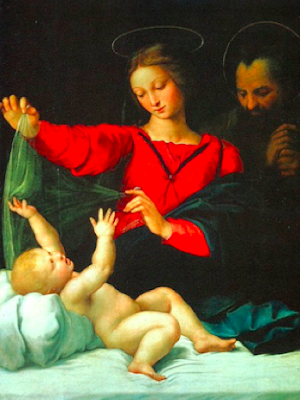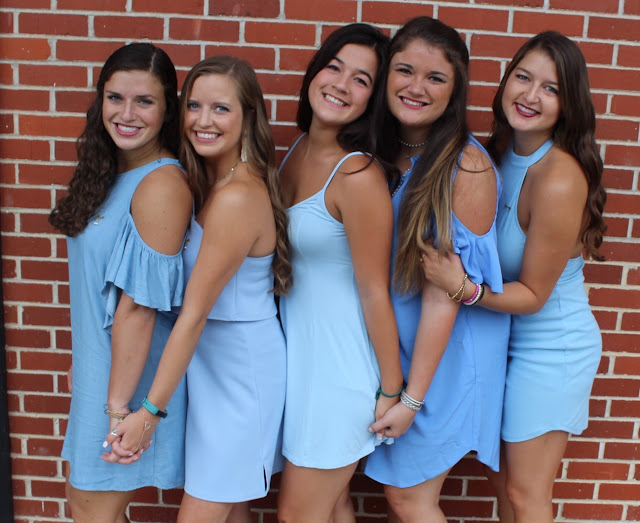Week 3 Story: Mary... The Hurter?
Way back when, there was a woman named Mary. Now Mary was the
mother of baby Jesus, which I know some people have been informed about, and
others think, is a myth. Mary’s miracle of birthing a child on behalf of God’s
terms was undoubtedly a mystery, but did that really mean she had superhuman
powers?
Way back when, there was a woman named Mary. Mary was the mother
of baby Jesus, and had this child because God called on her. Some believed this
story, while others believed it was a myth. Clearly a virgin having a child has
to be given some sort of superhuman powers, right?
Mary, Joseph and baby Jesus. Photo from Wikipedia.
Mary was thought to be a healer: someone with unordinary power
to heal all kinds of things that seemed to be a lost cause. At this time, there
were many success stories about Mary’s powers on people that needed healing.
Specifically, healing people with a particular disease.
One day, a disease called leprosy took over many nations. Many
leprous people needed healing, and their state terrified everyone around them. These
people were knocking on death’s door, and it seemed that nothing anyone could
do could help them. After hearing about a previous person’s leprosy being
healed by Mary, some other leprous women considered going to see Mary
themselves. They did not necessarily believe in her healing powers, but they
knew it was their last shot of hope.
A group of women eventually decided to go and see Mary in hopes
of being healed. They knew that Mary’s ultimate goal was to lead these people
to believing God, but these leprous people only wanted to be healed. They did
not have intentions of converting their beliefs further.
Expecting a miracle, many of these leprous people did not
receive what they had hoped for. Mary only healed those who already believed in
God and in her story, and she ignored those who didn’t believe. By doing so,
those who believed were healed; those who did not believe passed away from the
disease. Mary thought she was fulfilling God’s will by denying those that did
not believe, but she learned a lesson from this mistake.
Instead of believing because of personal thoughts, people were
being frightened into believing the story of Christ. Mary turned on God’s
children and let them die, which was not what was expected of her. Instead of
learning the story of Christianity in the way it was meant, Mary caused these
people to fear her, which outraged God.
God was disappointed in Mary, and found her unfit to guide people
to his word. Believers shunned Mary, and her legacy was not positive. Mary's
unwillingness to help others was not as God intended, and this led people away
from Him at a time when people needed Him most.
Mary eventually came down with leprosy herself, and she was not
cured. Her selfishness did not please God, and she could not heal herself after
hurting so many others. Perhaps this serves as a lesson to us all: do unto others,
as you want others to do unto you.
Author's Note:
This original story was all about the healing power of Mary, the
mother of Jesus. At the beginning, Mary proves to a woman when commanded that
she can help others at their request. Doing so, she gave thanks to God and
prayed to him while healing a woman’s child who was ill.
In this story, Mary stood out to me. Had she not have willfully
helped the first woman's child, she would not have been successfully spreading
God's miracles around from that day forward.
I thought that it would be interesting to see the story with a
different, more selfish Mary. Would believers think down on God, or would God
sacrifice Mary because of her selfishness?
Bibliography:




I really appreciate the message of this story, which is that dogma should not impact whether or not people help other people. I think Mary is a really powerful metaphor for a number of Christian leaders and practitioners who believe that, unless you believe in the Judeo-Christian God, you don't deserve help or really even the time of day. I think of places like Tulsa where Catholic Charities denies assistance to women who get abortions, despite the dire situations they may be in.
ReplyDeleteI had never heard about this story and I found that it was very interesting. I grew up in a United Methodist Church and a lot of the stories surrounding Mary were overlooked in Sunday school teachings. It's very curious how different denominations of Christianity focus on different parts of the teachings. Some tend to follow Mary in that they use scare tactics to make us believe and others conveniently leave out the verses that put the religion in bad light. I think if we are to truly follow a religion, we need to fully understand all of it and accept that it, like anything else connected to humans, has faults.
ReplyDelete